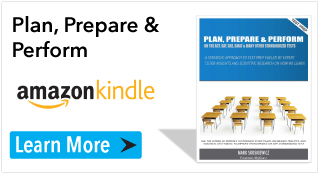If you are applying to an MBA program, you probably already know that the business school admissions committees will look at a number of elements in your application,...
How Important is Work Experience When Applying to Business School?
 Many potential MBA applicants worry about their level of work experience. This is an important piece of your business school application, and it can play an important role in the admissions process.
Many potential MBA applicants worry about their level of work experience. This is an important piece of your business school application, and it can play an important role in the admissions process.
While some prospective students have already been working for years by the time they choose to attend business school, others are either just out of college or only have 1-2 years of work experience. Business schools will almost certainly take into account your prior work history, considering both the amount and the type of experience you have.
Generally, the highest-level schools require at least some work experience, with 3-5 years being the average. However, this tends to fluctuate. For a few years, you might see average experience trend downwards, and then for a few more years, it starts to slide back up.
Furthermore, many of the best business schools do not allow you to submit an entirely new application if you have been rejected in a previous year. You must simply submit an updated information form and an essay explaining what has changed in your life since you last applied. This means that if you apply to schools before you have a strong enough work history, this can put you at a disadvantage later even when you have obtained the appropriate level of experience.
The key here is to be strategic, which is a common theme on MyGuru’s blogs. Figure out what school(s) you’re applying to, what they are looking for in applicants, and what your personal brand/story is going to be. What are you strengths, weaknesses, goals, rationale for applying, etc.? Then, once those facts are gathered and questions are answered, you can determine how many years of experience you are likely to need to ensure your application is internally consistent and as strong as possible. This makes much more sense than simply assuming you need X number of years of experience to be successful.
All that said, a good rule of thumb is to have at least three years of work experience before you apply to graduate school. This does not necessary need to be paid employment; internships and other types of experience can also help boost your resume. However, since the majority of applicants have spent years in full-time, paid positions, internships do not carry quite the same weight with admissions officers.
On the other hand, not all MBA programs are equal. While many cater to applicants with significant prior experience, some are specifically geared towards new graduates and other less experienced candidates. These are often referred to as “early career” MBA programs.
Although this is more the exception than the rule, there are also some high-level schools that do not place much emphasis on work experience when evaluating candidates. According to the Stanford University website,
One of the many myths floating around is that you need to have a certain number of years of work experience before you become eligible for admission to business school. This may be true for some schools but NOT for the Stanford MBA program... [We] believe that you know best when the time is right for business school. When you feel ready, apply. Whatever your career stage, use your application to make a case for how you will contribute, grow, and learn at Stanford.
However, one thing students with little work experience should consider is that other factors in their application – such as GPA and GMAT scores – will be weighed more heavily. A student with a somewhat weak undergraduate GPA may want to wait and accumulate more work experience before applying to schools.
If you do decide to apply to business schools despite having a lack of work experience, certain types of MBA programs will benefit you more than others.
Someone who is just getting started with his or her career should seek a full-time MBA program that emphasizes experiential methods of learning, such as internships, simulations, and networking opportunities. These types of activities will help the student build the experience that employers are seeking. Students with little work experience should also look for schools with strong career services to further help them advance their careers.

